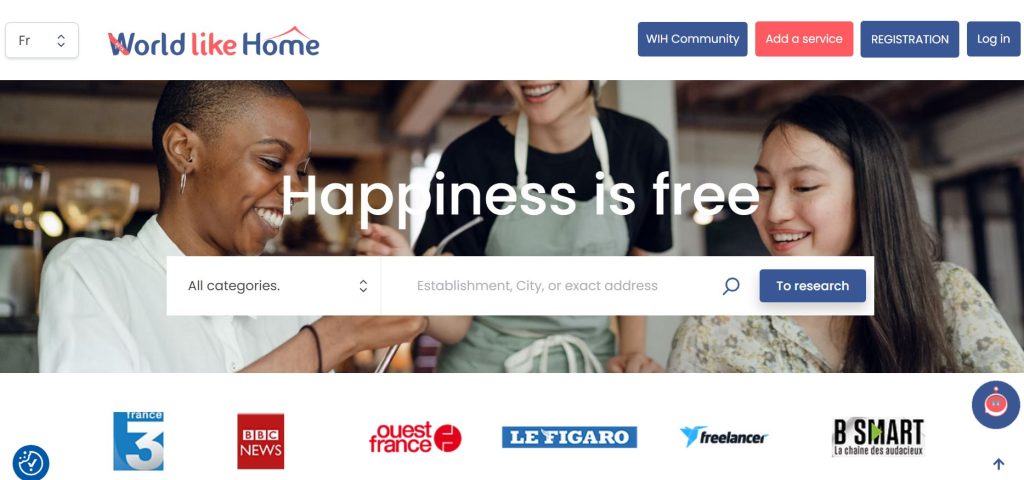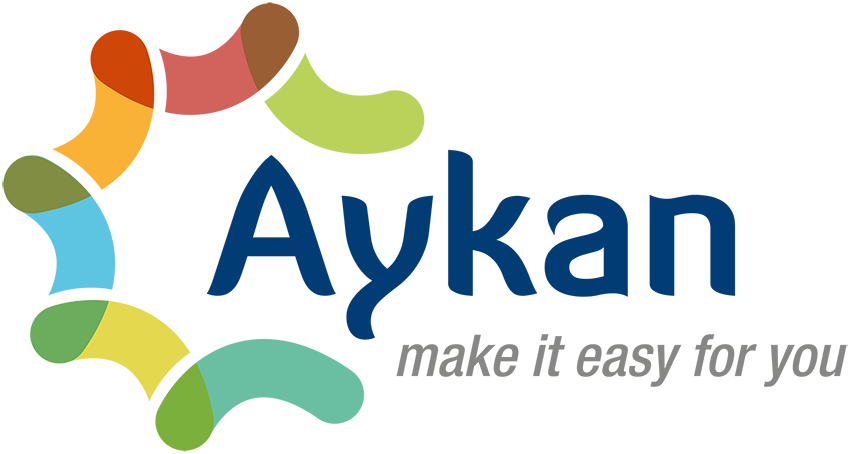The global workforce is undergoing a seismic shift. The rise of remote work, accelerated by advancements in technology and the aftermath of the COVID-19 pandemic, has led to the rapid growth of the freelance and gig economy. According to a 2023 report by Mastercard, the global gig economy is expected to grow to $455 billion by 2025. Workers are increasingly opting out of the traditional 9-to-5 model in favor of more flexible, project-based engagements that offer greater autonomy and work-life balance.
At the same time, businesses—facing increasing pressure to stay agile and competitive—are embracing freelance talent to access specialized skills on demand, reduce overhead costs, and scale quickly. This evolving dynamic has given rise to a new digital infrastructure: online talent marketplaces. Platforms like Upwork, Fiverr, Toptal, Freelancer, and niche verticals such as Contra (for creatives) or Worksome (for high-end consultants) are revolutionizing how work is sourced and delivered.
These marketplaces are more than just intermediaries; they are enablers of economic empowerment. Through streamlined discovery, integrated payment systems, reputation-building tools, and global reach, they are helping freelancers and gig workers unlock new income streams, build professional brands, and participate in a truly borderless economy.
A Paradigm Shift in the Workforce
The rise of freelancing and gig work represents more than just a trend—it signals a profound transformation in how work is defined, delivered, and valued in the modern economy. This shift is not confined to a niche group or specific geography. Today, over 1.5 billion people worldwide are engaged in some form of gig or freelance work, contributing trillions of dollars to global GDP annually, according to data from the World Bank and the International Labour Organization.
What was once considered supplementary or stop-gap work has now evolved into a sustainable, long-term career path for millions. In countries like India, the United States, Brazil, and the Philippines, freelancing has become a central pillar of the workforce. In fact, India alone has over 15 million freelancers, making it the second-largest freelance market globally, while 38% of the U.S. workforce identifies as independent workers as of 2023, according to Upwork’s latest report.
Recommended Blog: Sharetribe Marketplace Software: The Key to Launching Your Own Platform
Aykan's expertise in Freelance Marketplace Platforms

What sets Finduo apart is the transparency and detail provided within each listing. Accounting firms can present a comprehensive profile outlining their services, industry focus, experience, and pricing models. This allows users not only to compare offers at a glance but also to understand the unique value proposition of each provider.
Once users identify suitable options, they can initiate direct contact through the platform—sending inquiries, requesting quotes, or scheduling consultations—making the selection process fast, professional, and hassle-free.
For accounting professionals and firms, Finduo serves as a powerful client acquisition channel. By joining the platform, they can significantly increase their online visibility and connect with potential clients who are actively seeking their services. Through customizable profiles and the ability to respond to direct messages, firms can effectively showcase their strengths and build relationships with a wide range of clients—from solo entrepreneurs to established companies.
Finduo’s long-term vision is to become the go-to digital marketplace for accounting services across Poland (and eventually beyond), offering both clients and service providers a secure, efficient, and trustworthy environment to do business. The platform is continuously evolving to add more features, including review systems, scheduling tools, and data analytics for firms to track engagement and performance.

From airport pickups to finding accommodation and emotional support, Esians provide services that make the arrival and adjustment process smoother and more human. The experience follows a well-defined four-phase model—Initiation, Request, Connection, and Follow-up—ensuring both quality and safety. For Esians, WIH is also an opportunity to earn money by helping others, creating a cycle of mutual benefit.
At its heart, World Like Home is more than just a service—it’s a mission to make every student feel welcome, valued, and at home, no matter where they come from. With every connection made, WIH fosters a kinder, more supportive world built on shared stories, smiles, and solidarity.
Key Drivers Behind the Shift to Freelancing and the Gig Economy
1. Digital Transformation and Automation
The acceleration of digital technologies has redefined how work is performed and who can do it. Cloud computing, project management software, communication platforms like Slack and Zoom, and online marketplaces such as Upwork, Freelancer, and Toptal have drastically lowered the barriers to entry for independent work. Tasks that once required physical presence or large organizational infrastructure can now be done remotely and efficiently by individuals equipped with digital tools.
At the same time, automation and artificial intelligence (AI) have streamlined routine tasks, pushing businesses to prioritize project-based, specialized work that often benefits from freelance engagement. For example, companies are increasingly hiring freelance data analysts, AI trainers, UX designers, and cloud consultants to manage tech-driven transformations on an as-needed basis, rather than investing in permanent in-house teams.
The 2024 World Economic Forum’s “Future of Jobs” report highlighted that 44% of core job skills will change within five years, making continuous upskilling and agile talent models (like freelancing) crucial for workforce resilience.

2. The Desire for Flexibility and Autonomy
A growing number of professionals are opting for careers that align with their lifestyle choices rather than being constrained by rigid corporate structures. Freelancing provides the freedom to choose when, where, and how to work, which is especially appealing to millennials and Gen Z, who now make up the majority of the global workforce.
This flexibility enables professionals to prioritize health, family, travel, and personal growth while maintaining a steady income. A 2023 survey by MBO Partners revealed that more than 70% of full-time independent workers say they are highly satisfied with their career path, citing flexibility as the leading benefit.
Moreover, the COVID-19 pandemic served as a catalyst for this shift. Many workers who experienced remote work during lockdowns were reluctant to return to the traditional office environment. Freelancing emerged as a viable alternative for those seeking continued autonomy without sacrificing income.
3. A Growing Dissatisfaction with Traditional Employment Models
Many professionals are increasingly disillusioned with conventional employment structures. Long commutes, lack of work-life balance, rigid hierarchies, job insecurity, and limited growth opportunities have contributed to this dissatisfaction. Corporate burnout and layoffs in sectors like tech and finance have further eroded the perception of job stability once associated with full-time employment.
Additionally, the global talent shortage has shifted the power dynamic. Skilled workers—particularly in fields like software development, content creation, digital marketing, and design—realize they can command better compensation and working conditions by going independent.
The result is a “Great Resignation” movement morphing into a “Great Reinvention,” where workers are reevaluating what they want from their careers. According to a 2024 report from Gallup, 58% of workers globally are considering a freelance or independent path in the next five years, up from 43% in 2021.
4. Access to Global Clients and Remote Work Opportunities
Freelancing breaks down geographic barriers, giving individuals access to clients and companies worldwide. A graphic designer in Nairobi can work with a startup in Berlin, a copywriter in Buenos Aires can collaborate with a marketing firm in Toronto, and a software engineer in Vietnam can contribute to projects in Silicon Valley—all facilitated by digital platforms and remote collaboration tools.
This globalization of opportunity has been particularly empowering for talent in emerging markets, where local job markets may be limited but technical or creative skill levels are high. It also allows companies to tap into high-quality talent at competitive costs, leading to a win-win scenario.
The Harvard Business Review noted in 2023 that nearly 70% of companies globally plan to increase their use of remote freelance talent to fill skill gaps and remain agile in a rapidly changing economic environment.
In addition, with the rise of decentralized work ecosystems and virtual-first companies, remote freelance contracts are becoming a standard practice in many industries—including tech, healthcare, education, and media.
Opportunities in the Freelance and Gig Economy
1. Flexibility and Autonomy
One of the most significant advantages of freelancing is the ability to control one’s schedule, workload, and professional trajectory. Freelancers can choose which clients to work with, set their own rates, and select projects that align with their personal and professional goals. This level of control fosters greater job satisfaction and can reduce stress when compared to traditional employment structures.

In addition to scheduling flexibility, freelancers often choose their own work environment—whether it’s working from home, a co-working space, or while traveling. This level of autonomy is particularly valuable for parents, caregivers, individuals with disabilities, and those seeking to balance multiple personal or professional pursuits.
According to Upwork’s 2023 Freelance Forward Report, 77 percent of freelancers stated they had better work-life balance than when they held traditional jobs. Furthermore, 68 percent of them said freelancing gave them the flexibility to live the life they want.
2. Global Access to Opportunities
Freelance marketplaces such as Upwork, Fiverr, Toptal, and Freelancer.com allow professionals to connect with clients across borders. This access to international markets provides freelancers with exposure to diverse industries, work cultures, and compensation structures. In many cases, it allows professionals in developing countries to earn significantly more than they would in their local markets.
This borderless environment also benefits companies by providing access to a global talent pool. Businesses can scale faster and more efficiently by sourcing specialized talent on-demand without incurring the fixed costs of full-time employment.
A 2024 report by Payoneer revealed that more than 70 percent of freelancers in regions such as Southeast Asia, Latin America, and Eastern Europe work primarily with clients outside their home countries. This global outreach contributes significantly to rising income levels and skill development in emerging economies.
3. Diversification of Income Streams
Freelancers are not confined to a single employer or revenue source, which creates opportunities to build diversified income portfolios. Many freelancers offer different services, work with clients across industries, or supplement project work with digital products, affiliate marketing, consulting, or online courses.

This diversification provides a buffer against market volatility and income fluctuations. It also allows freelancers to test business ideas and build long-term passive income sources, enhancing financial resilience.
The 2023 State of Independence in America report by MBO Partners found that over 40 percent of full-time independents reported having three or more streams of income. This is a significant increase from previous years and highlights a growing trend among freelancers to build hybrid career models that blend service-based work with product or content-based revenue.
4. Skill Development and Career Growth
Contrary to the misconception that freelancing is a career plateau, the freelance model often accelerates skill development. Freelancers regularly work across multiple industries, technologies, and business models, exposing them to diverse challenges that require constant learning and adaptation.
Many marketplaces also offer tools for upskilling. For instance, Upwork Academy and Fiverr Learn provide courses on business management, design, communication, and technical skills. Freelancers often invest in platforms like LinkedIn Learning, Coursera, or Udemy to stay relevant and competitive.
This continuous learning environment, combined with real-world project experience, helps freelancers become highly adaptable professionals with cross-functional expertise. Employers and clients value this flexibility, especially in sectors such as technology, marketing, and design.
5. Lower Barriers to Entry
Freelancing offers a more accessible entry point into the workforce for individuals who may not have traditional qualifications or professional experience. Many platforms emphasize skill demonstration through portfolios and reviews rather than resumes and degrees.
This opens up opportunities for self-taught individuals, career changers, students, and those returning to work after a hiatus. With relatively low startup costs, individuals can begin freelancing with just a computer and internet connection.
LinkedIn’s 2023 Workforce Insights report noted that 43 percent of employers are now prioritizing skill-based hiring over degree-based requirements, especially for contract and freelance roles. This shift is enabling broader participation in the knowledge economy and supporting economic inclusion.
6. Entrepreneurial Development
Freelancing can act as a stepping stone toward entrepreneurship. Many freelancers go on to create small agencies, productized service businesses, or tech startups based on their experience and networks developed during solo work.

Freelancers gain direct exposure to client management, pricing, marketing, operations, and service delivery—skills essential for entrepreneurship. Over time, many transition from service providers to business owners, leveraging their personal brand and niche expertise to scale.
According to data from Freelancers Union, as of 2024, around 18 percent of freelancers identify as solopreneurs or founder-freelancers, indicating a trend toward small business formation. This entrepreneurial pathway is particularly prevalent in creative industries, software development, consulting, and digital marketing.
Challenges in the Freelance and Gig Economy
1. Income Volatility and Financial Uncertainty
A primary concern among freelancers is the unpredictability of income. Without fixed salaries or long-term contracts, freelancers often face periods of feast and famine. Managing cash flow becomes critical, particularly when payments are delayed or project pipelines run dry.
This income instability can affect personal financial planning, including budgeting, credit access, and major life decisions such as homeownership or education financing. While some platforms offer payment protection and escrow systems, these mechanisms are not foolproof.
The Freelancers Union’s 2023 survey found that 61 percent of freelancers cited irregular income as their top financial concern. Moreover, 32 percent admitted they had postponed major financial or life decisions due to uncertainty in their earnings.
2. Lack of Traditional Employment Benefits
Unlike salaried employees, freelancers do not receive employer-sponsored benefits such as health insurance, paid leave, retirement contributions, or unemployment insurance. They must independently manage and finance these needs, which can be costly and complex—especially in countries like the United States where healthcare costs are high.

During personal emergencies or economic downturns, this lack of a safety net can lead to financial vulnerability. While some nations are experimenting with portable benefits and social security coverage for gig workers, adoption remains limited.
A 2024 study by the Aspen Institute found that only 12 percent of full-time freelancers in the United States had access to health insurance via their freelance income. This gap has fueled growing calls for policy reform and support structures for independent workers.
3. Overreliance on Platforms and Algorithmic Risk
Freelancers who depend heavily on a single marketplace or platform risk losing access to their primary source of income due to sudden policy changes, account deactivation, or algorithm shifts. Platforms may modify visibility criteria, commission structures, or content rules, affecting freelancers’ ability to attract clients.
Because many platforms are governed by opaque algorithms, freelancers often face unpredictability in how they are ranked or recommended. Negative reviews or disputes—even if unfounded—can significantly impact credibility and earnings.
To mitigate this risk, experts recommend building an independent brand presence through personal websites, email lists, and professional networks, while using platforms as supplemental channels rather than the sole source of clients.
4. Intense Competition and Downward Pricing Pressure
While access to global talent pools offers opportunities, it also creates intense competition. Freelancers from regions with lower costs of living often underbid those in higher-income regions, placing pressure on rates and margins.
This race to the bottom is particularly pronounced on open marketplaces where pricing is a key filter. As a result, some professionals find it difficult to charge sustainable rates, especially when competing with generalist offerings.
To counter this, many freelancers are shifting toward specialization, value-based pricing, and client education strategies. Positioning as an expert or niche provider—rather than a commodity vendor—can help preserve pricing power.
5. Isolation and Work-Life Imbalance
While freelancing offers independence, it can also lead to social and professional isolation. Freelancers often work alone and lack the daily interactions, collaboration, and support systems found in traditional workplaces.

Moreover, the pressure to deliver high-quality work while managing client expectations, sales, finances, and operations can lead to burnout. Many freelancers report working longer hours than they did in traditional roles, especially when juggling multiple projects or urgent deadlines.
A study conducted by the University of Leeds in 2023 revealed that freelancers are 25 percent more likely to report symptoms of burnout and mental fatigue compared to their employed counterparts. This has sparked increased interest in co-working spaces, peer networks, and freelance communities that provide connection and support.
6. Delayed Payments and Payment Disputes
Freelancers frequently encounter challenges related to payment—ranging from late payments and unclear terms to outright non-payment. Even on reputable platforms, freelancers may face delays due to verification processes, dispute resolutions, or client default.
Slow cash flow can impact operational continuity and personal expenses. Without formal HR departments or legal teams, freelancers often struggle to enforce contracts or pursue delinquent payments.
According to a 2023 PayPal freelancer survey, 58 percent of respondents had experienced late payments, and 32 percent reported clients disappearing after work was delivered. As a result, more freelancers are adopting upfront deposits, milestone payments, and payment automation tools to reduce risk.
Conclusion
The future of work is increasingly characterized by flexibility, autonomy, and digital connectivity. Freelancers and gig workers are at the heart of this transformation, with online marketplaces serving as vital platforms for their empowerment. As the gig economy continues to evolve, it is essential to address the accompanying challenges to ensure a sustainable and inclusive future for all workers.
FAQ's
- What are the key benefits of freelancing and gig work? Freelancers enjoy the freedom to choose projects, set their own rates, and work from anywhere, offering them unparalleled work-life balance and autonomy. Many freelancers also benefit from a diverse income stream and the ability to work with international clients, expanding their professional opportunities.
- How do online marketplaces help freelancers? Platforms like Upwork, Fiverr, and Freelancer provide freelancers with a global reach, allowing them to connect with clients from all over the world. These platforms offer tools for secure payments, reputation building through reviews, and project management, making it easier for freelancers to establish and grow their businesses.
- What are the challenges faced by freelancers in the gig economy? Freelancers face several challenges, including income volatility, lack of traditional employment benefits (such as health insurance and retirement plans), and competition from a global talent pool. Additionally, the unpredictability of platform algorithms and delayed payments can also impact their financial stability.
- How do freelancers manage income volatility? To manage the irregular income that often comes with freelancing, many freelancers diversify their revenue streams by offering different services, working with multiple clients, and even generating passive income through digital products, courses, or affiliate marketing. Financial planning and budgeting are also crucial for maintaining stability.
- What are the future growth prospects for freelancers and gig workers? The gig economy is expected to continue growing, with the global gig economy projected to reach $455 billion by 2025. With technological advancements, digital transformation, and increasing demand for specialized talent, freelancing will become a more viable and sustainable career path for millions of professionals globally.
- How can freelancers deal with competition on marketplaces? Freelancers can differentiate themselves by specializing in niche markets, adopting value-based pricing, and focusing on building a personal brand. By positioning themselves as experts or offering unique services, they can avoid the race to the bottom on pricing and attract higher-paying clients.
- What legal protections do freelancers have? Legal protections for freelancers vary by country and platform. However, most freelance marketplaces provide some form of dispute resolution or payment protection. Freelancers are encouraged to set clear contracts with clients, request upfront payments, and leverage tools like escrow systems to mitigate payment risks and ensure they are paid fairly.








